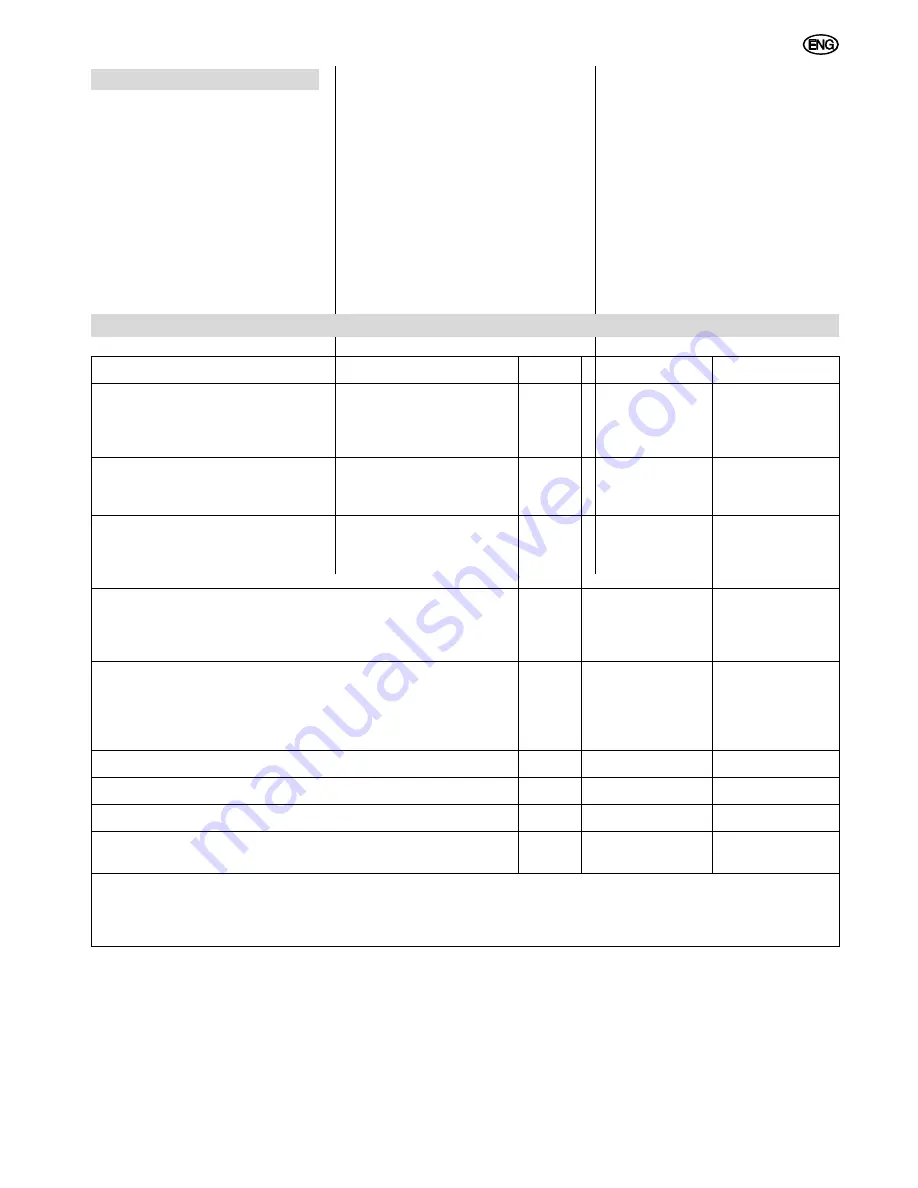
17
ENGLISH
A
Danger!
Before carrying out any repair service
or maintenance work, always:
Turn splitter OFF
Unplug power cable
Check to see that all safety devices
are operational again after each trou-
bleshooting.
Motor does not run
No supply voltage:
check cables, plug, outlet and mains
fuse.
Mains voltage too low:
use power cable of sufficient lead
cross-section (see "Technical Speci-
fications").
No-voltage release solenoid tripped by
temporary power failure:
switch on again.
Overload protection tripped:
let motor cool down for approx. 10 min-
utes, then start motor again.
Motor runs, but the splitting knife
does not move
Phase sequence changed at the phase
changer:
change direction of rotation (see
"Mains Connection").
Low splitting force (ram force)
Splitter column guides are dirty:
clean the guides (see "Care and
Maintenance").
10. Troubleshooting Guide
11. Technical Specifications
HS 6001 W
HS 6001 D
Electrical data
Voltage
Nominal current
Fuse protection min. (time-lag or K-type breaker)
Protection class
V
A
A
230 (1
a
50 Hz)
13.2
16
IP54
400 (3
a
50 Hz)
7.2
10
IP54
Motor:
Power input P1
Power output P2
No-load speed
kW
kW
min
-1
3000 S6 40%
2350 S6 40%
3000
3500 S6 40%
2900 S6 40%
1500
Splitting knife
Maximum length of travel
Splitting force
Splitting speed
Return speed
mm
t
mm/sec
mm/sec
480
6
40
140
480
6
50
140
Maximum dimensions of logs to be splitted
Maximum diameter
Minimum diameter
Maximum length
mm
mm
mm
320
120
520/ 780/ 1040
320
120
520/ 780/ 1040
Machine dimensions
Length
Width
Height (splitting knife fully retracted)
Height (splitting knife fully extended)
mm
mm
mm
mm
860
930
1040
1520
860
930
1040
1520
Machine weight
kg
127
130
Filling capacity/Hydraulic oil
l
4
4
Recommended hydraulic oil
Aral Vitam GF 22
Aral Vitam GF 22
Noise emission - idle running*
Noise emission - during operation*
dB (A)
dB (A)
65
80
65
80
* The values stated here only indicate the loudness emitted by this machine. Whether the operator is required to wear hearing pro-
tection cannot be determined here. This depends on how much noise reaches the ear of the operator. And this, among other things,
depends on the existing ambient conditions (such as other sources of noise near by). Even though it may not be explicitly required,
it is in your own interest to always wear hearing protection when operating this machine.
















































